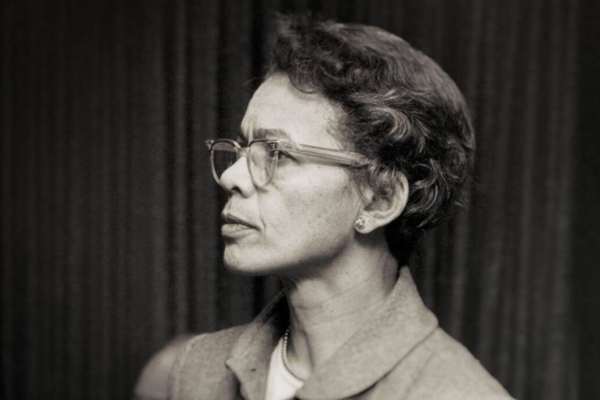Ah, the sweet escapism of sci-fi and fantasy. From The Hunger Games to The Force Awakens, women and people of color are presidents, space commanders, and leaders of the resistance without protest or fanfare from those around them. Dystopian America and a Galaxy Far Far Away know no racism or sexism, it seems. But that’s not necessarily a good thing for those of us in the audience. As Atencio wrote of For All Kind, “The willingness to embrace fictional diversity … but an unwillingness to deal with the tensions that would follow, is maybe the farthest stretch on the show.”
Danté Stewart is a product of two of the most powerful traditions in the United States: the Black Christian tradition and the Black literary tradition. In his new book, Shoutin’ in the Fire: An American Epistle, Stewart traces how these traditions have touched his life and why he believes they can heal the Christian church and the United States.
Midnight Mass is the latest from horror filmmaker Mike Flanagan (creator of The Haunting of Hill House and The Haunting of Bly Manor), who excels in slow-creeping, character-based horror. It’s also a project through which Flanagan, a former Catholic, processes his feelings about scripture, religion, and the church. As an artistic representation of someone deconstructing their faith, Midnight Mass employs horror tropes to explore the ways religion responds to pain, both in ways that heal and ways that destroy.
Joel Lohr, the president of soon-to-not-be “Hartford Seminary” sat with Sojourners’ assistant news editor Mitchell Atencio in late September to explain why the school is changing its name and what that change says about the future of theological education — and the church — in the United States.
When we do not take care of the earth and allow powerful individuals or companies to plunder the land God has called good (Genesis 1), the people who are disproportionately impacted are the marginalized. This discrepancy between those who benefit and those who suffer highlights the way our society is structured to benefit oppressors at the expense of people who are poor, hungry, and disenfranchised.
The church had shown "deep, total and even cruel indifference for years," protecting itself rather than the victims of what was systemic abuse, said Jean-Marc Sauve, head of the commission that compiled the report.
Over the last year and a half, mutual aid’s increased popularity has helped people connect with neighbors, build relationships, and attempt to combat racism and economic inequality. Now, mutual aid structures are being tested by hurricanes, fires, and other climate crisis-induced natural disasters, showing the strengths and limitations of neighbors helping neighbors.
What does a trailblazing Episcopal priest, a lawyer whose work helped to shape the Brown v. Board of Education case, a founding member of the National Organization for Women (NOW), and a close friend of Eleanor Roosevelt all have in common?
They are all the same person. And My Name Is Pauli Murray, a new documentary from Amazon Studios, tells the fascinating story.
The Supreme Court’s new nine-month term, which begins on Monday, promises to be among the most momentous in generations. The justices are poised to decide major cases that could roll back abortion rights and broaden gun and religious rights.
Here is a look at some of cases the court will decide during the term, which runs through the end of next June.









